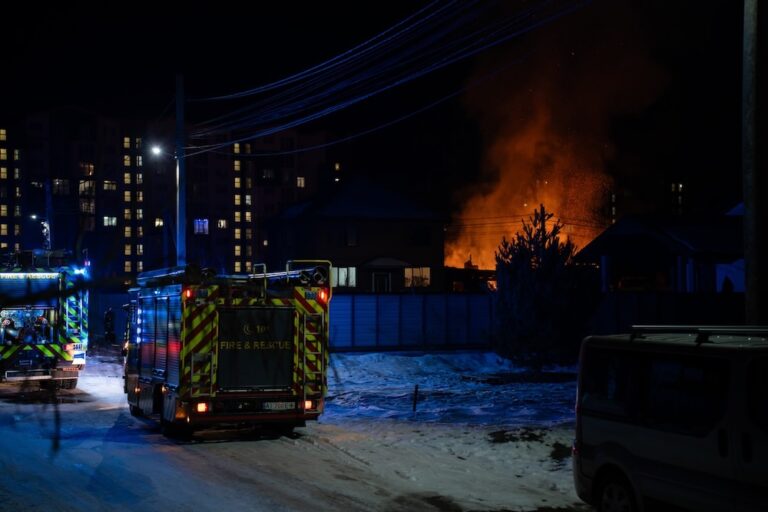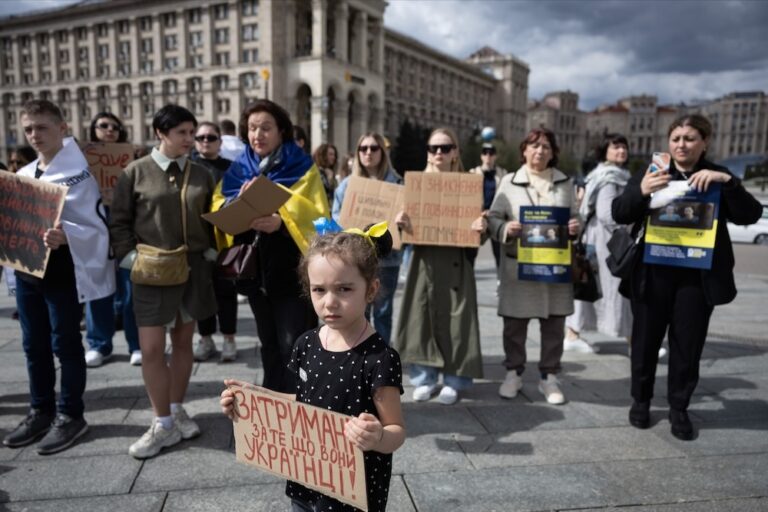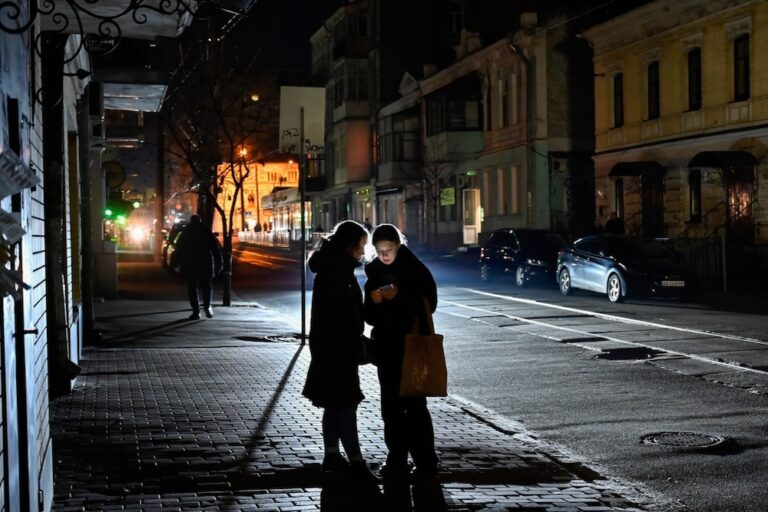(CJES/IFEX) – Tatyana Krasilnikova, editor-in-chief of the newspaper “Kommersant-Nizhny Novgorod”, was summoned to the Nizhny Novgorod prosecutor’s office on 19 March 2007, for questioning about an article published by the newspaper, entitled “Nizhny Novgorod Mayor’s Office disagrees with the Disagreeing Ones”. The writer of the article, Yuliya Sukhonina, was the first to be summoned, but […]
(CJES/IFEX) – Tatyana Krasilnikova, editor-in-chief of the newspaper “Kommersant-Nizhny Novgorod”, was summoned to the Nizhny Novgorod prosecutor’s office on 19 March 2007, for questioning about an article published by the newspaper, entitled “Nizhny Novgorod Mayor’s Office disagrees with the Disagreeing Ones”.
The writer of the article, Yuliya Sukhonina, was the first to be summoned, but as she was ill, her editor was called instead.
“I was told right away that. . . they were only interested in the March of the Disagreeing Ones organized by the united opposition in the city on 24 March. The law enforcement officers were interested in our sources and their reliability,” Krasilnikova told CJES.
The editor also said this was the first time such a summons had been issued to the newspaper. “We don’t even know how to react to this situation. On the one hand, the law enforcement officers were very polite, but on the other, the whole situation seemed very strange to us – the summons and the questions about the reliability of the sources,” she said.
The organizing committee of the March of the Disagreeing Ones believes the summons to the prosecutor’s office is an attempt to put pressure on the newspaper.
CJES expert Irada Guseinova believes the Russian authorities have begun instituting so-called soft pressure following recent criticism from international organizations. The local authorities are not banning journalists from covering specific issues, nor threatening them with sanctions, but instead, journalists are invited to the police or the prosecutor’s office for a “talk”, where the authorities make it clear what they want published.
“Sometimes it happens like it did in the incident involving Tatyana Krasilnikova, who was invited to talk about a rally organized by the opposition. It seems to us that if the papers bring up the issue of the opposition again, another invitation will follow. It may take several invitations to make the editor-in-chief draw the ‘right’ conclusion – that the summons will stop if the paper stops writing about the opposition. That is the purpose of ‘soft pressure’,” said Guseinova.


